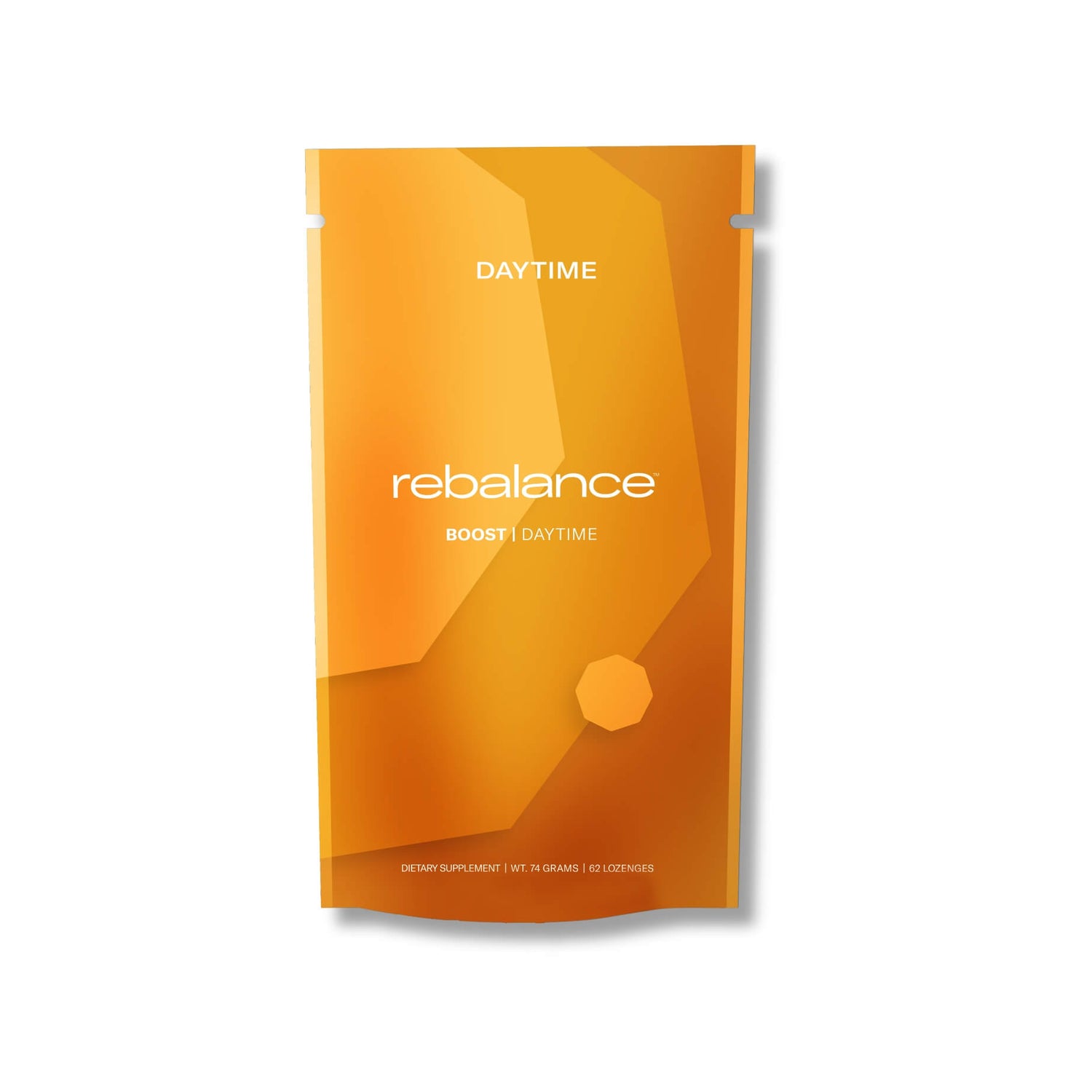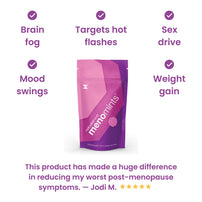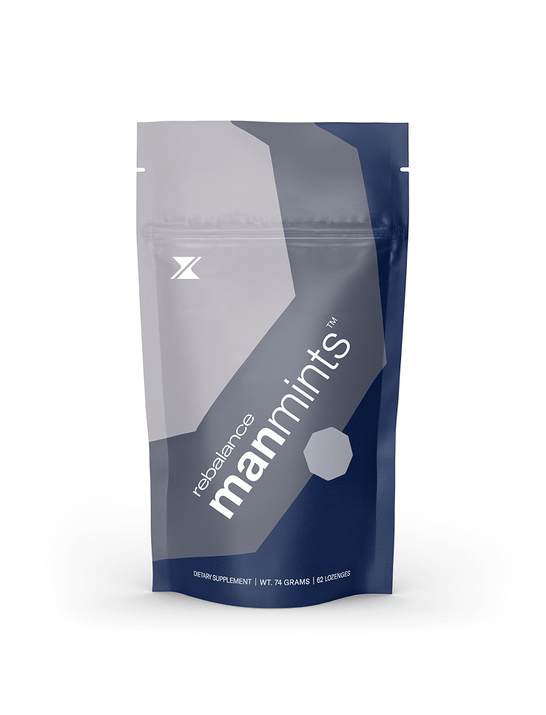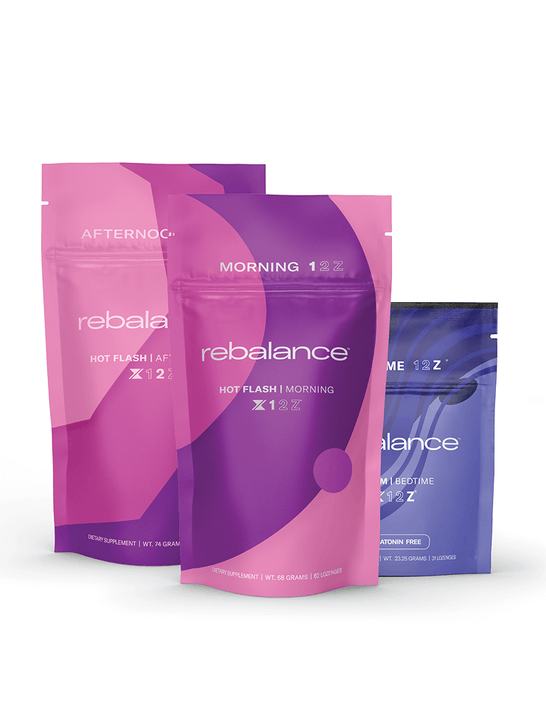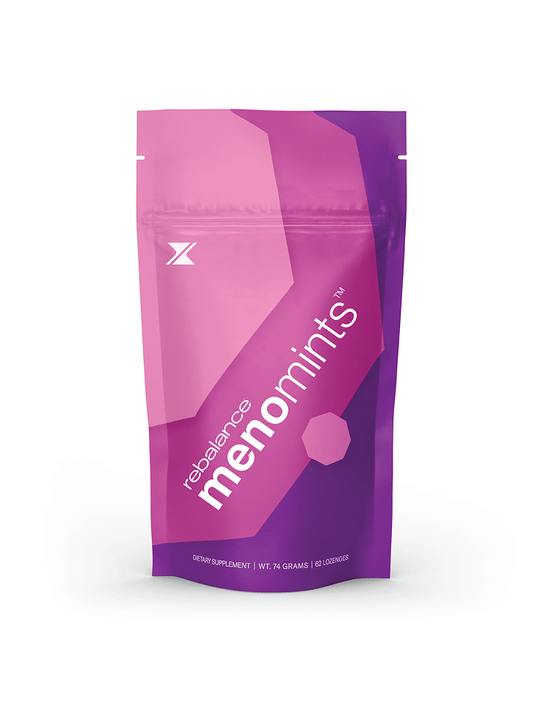Midlife Weight Gain? It’s Not You, It’s Your Hormones.
04/30/2025 by Rebalance Health
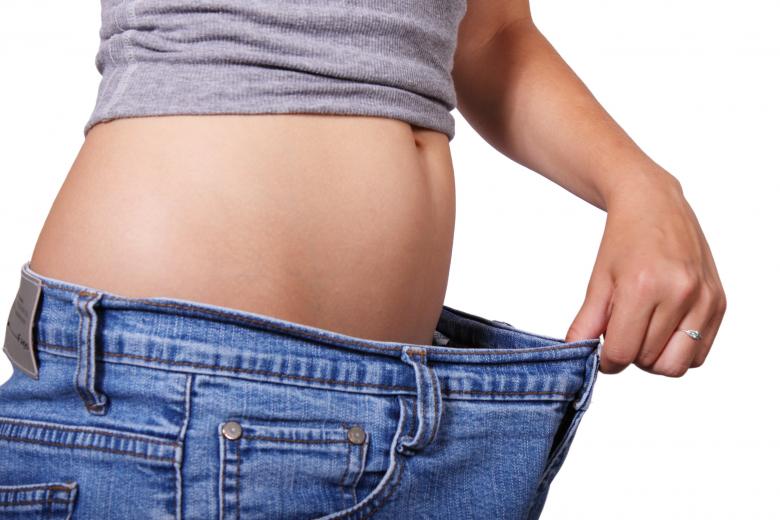
Let’s cut to it: if your jeans have suddenly turned on you, your cravings have staged a coup, and you feel like you’re gaining weight just thinking about food—you are not broken. You’re in menopause.
And contrary to every smug magazine article from the early 2000s, it’s not about “eating too many carbs” or “not walking 10,000 steps.” Your hormones have gone rogue, and no kale salad is gonna fix it.
Let’s talk about what’s really going on—and what you can actually do about it.
First of All: You’re Not Crazy (and Definitely Not Lazy)
If it feels like your body is doing its own thing lately... it is. Around menopause, nearly 90% of women gain weight—often right in the belly zone. Even the ones who eat well. Even the ones who work out. Even the ones who used to lose five pounds by skipping wine for a week.
Here’s why: your hormones have more control over your metabolism than your willpower ever did.
Meet the Real Culprits (Hint: It’s Not You)
Cortisol: The Stress Hormone That Loves Your Love Handles
Cortisol is supposed to help you survive lions. Now it’s activated by traffic, emails, and your kid asking what’s for dinner while you’re still chewing lunch.
When cortisol stays high (thanks, modern life), it:
- Stores fat (especially in the belly)
- Wrecks your sleep
-
Sends your cravings into a tailspin
… and just for fun, it slows your metabolism. Cool cool cool.
“Cortisol isn’t just about stress. It’s a major player in how your body burns (or stores) energy.”
—Dr. Todd Dorfman, Hormone Expert
Estrogen: The Metabolism Wingwoman That’s Ghosting You
Estrogen helps you burn fat, balance blood sugar, and build muscle. When she starts to pack her bags in perimenopause:
- Fat starts to cling, especially around your middle
- Muscle mass drops like a bad ex
- Your metabolism taps the brakes
Insulin: The Sugar Manager Turned Hoarder
Estrogen keeps insulin in check. Without her, insulin gets a little... clingy. That means:
- More blood sugar swings
- More fat storage
- More hangry 3 p.m. snack attacks
Why “Eat Less, Move More” Doesn’t Work Anymore
If you’ve ever tried to cut calories or up your workouts and STILL gained weight, you’ve seen the problem firsthand.
Here’s the deal: dieting raises cortisol. Cortisol stores fat. So starving yourself to lose weight during menopause is like pouring water on a grease fire. You might feel like you’re doing something—but it’s not helping.
Okay, So What Does Help?
The answer isn’t more restriction. It’s more rhythm.
When you support your hormonal rhythm—your body’s natural cycle of stress, energy, and rest—things start to shift. You sleep better. You crave less. You stabilize your energy. You stop feeling like a stranger in your own skin.
Real fixes, not fads:
- Lower your cortisol
Adaptogens like ashwagandha and cordyceps can help chill your system without knocking you out. - Sleep like it’s your job
Deep, regular sleep = better metabolism and lower cravings. It's not lazy. It’s science. - Nourish, don’t deprive
Eat enough protein. Walk more. Stop fearing carbs. Stabilizing blood sugar beats starving every time. - Support your body with a system built for this
Rebalance’s Hot Flash System was designed for midlife women dealing with hot flashes, stress, and yes—weight gain. It helps lower cortisol, support your natural rhythm, and give your body the backup it’s been begging for. No hormones. No crash. No shame.
The Bottom Line: It’s Not All in Your Head (It’s in Your Hormones)
This isn’t about willpower. It’s about working with your body, not against it. Weight gain in menopause is common. But that doesn’t mean it’s inevitable—or untouchable.
You don’t need to hustle harder. You need a smarter system.
Related blogs you may like:
Meno Belly or Cortisol Belly? How To Tell The Difference
The Diet-Stress Trap: Why Restriction Can Raise Cortisol
Overview

Stay Calm. Sleep Deep. Wake Clear.
A lozenge that supports deep sleep, better REM, and calmer nights. Without melatonin — unless you want it.
